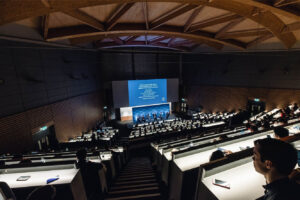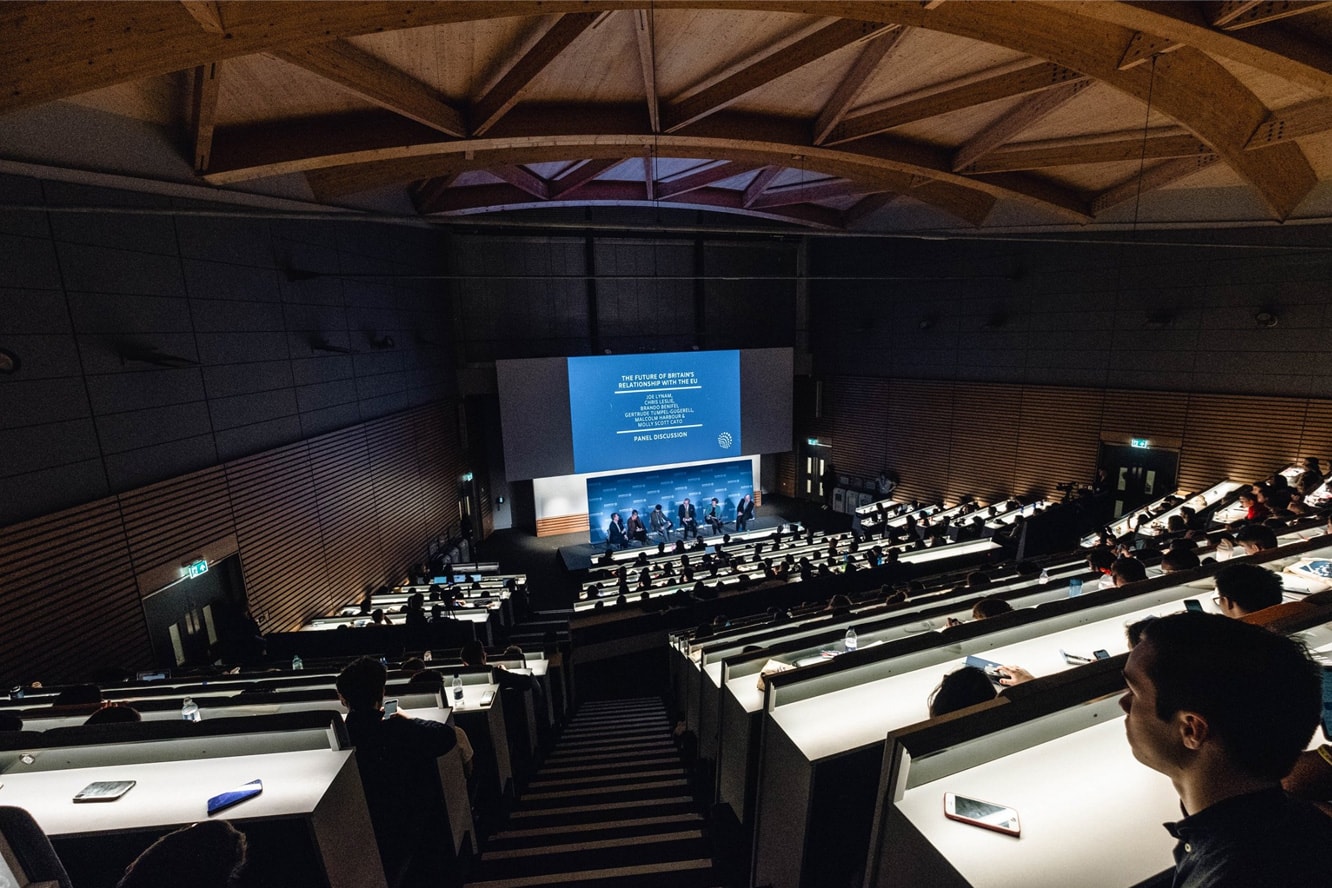
Credits: The Warwick Economics Summit 2020
In early February, the 23rd iteration of the Warwick Economics Summit (WES) will commence, bringing together students and experts in economics, politics, and development. One of the goals of its next edition, WES2024, will be addressing the “Future of Food” through a panel discussion.
Nineteen Nobel laureates and countless world leaders have attended as previous speakers. This year’s summit will host some of the premier figures in the food industry and many other fields, as well as students wishing to share their perspectives on the vast array of topics.
It’s not hard to see problems like food insecurity, agricultural emissions, and more stemming from existing issues within the industry. Three billion people cannot afford a healthy diet and 50 million are on the edge of famine. Roughly 20 percent of global emissions come directly from agriculture, half of which comes from livestock alone, according to the Food and Agriculture Organization of the United Nations. And while the UN’s Sustainable Development Goals attempt to confront these agriculture-related issues, little within their frameworks describes how these goals will be achieved, including which steps must be taken first and what exactly it is we are to work towards.
Which targets must be reached before achieving zero hunger? What will food distribution look like? Is it even possible to feed the globe sustainably? Without answering or even addressing these questions first, the problems of food insecurity and unsustainable food production will not be solved. Being complex and global issues, many of their smaller, logistical aspects fly under the radar despite having compounding effects. The many intertwining facets, ranging from global biodiversity loss to agricultural regulation, require a united approach that encompasses the world’s diversity.
Being one of Europe’s largest student-run conferences, the Warwick Economics Summit will be one of the leading forums for discussing these issues and potential solutions for them. Not only will it provide an opportunity for experts to reach hundreds of exceptional students from elite institutions across the globe, it will serve as a framework for engaging discussions between them.
The broad scope of subjects within the food industry, from scientific innovation to increasing regulation, will naturally provide a diverse speaker panel that will highlight different perspectives on the future of the sector. Vivek Venkatram, the Talks Coordinator for this year’s summit, stated that “this panel is an educational opportunity, as many are unaware of this issue and it closely ties into the need for more sustainable, scalable, and accessible global food production,” underscoring both the prominence of the subject and the role students have in changing its practice.
Although not beginning until February, the Warwick Economics Summit has already been tackling other pressing issues. One of such has been artificial intelligence and the future of work, explored through a recent panel held on October 10th and co-hosted with other societies and the Economics department of the University of Warwick. The panel included former Microsoft Chief Envisioning Officer, an Oxford professor, an expert policymaker and, of course, students, which participated both as panelists and as audience members. For example, Joseph Brennan, a second-year economics student at the University of Warwick and coordinator at WES, shared his thoughts on the current state of AI as both “a tool and a replacement” for workers, alongside Dr. Abigail Gilbert, the Director of Praxis at the Institute for the Future of Work.
Having boasted over 400 attendees and an engrossing debate, October’s panel was a taste of what is to come during the summit itself. Between the 2nd and 4th of February 2024, the Warwick Economics Summit will host its flagship event, which includes a series of live keynotes and panel discussions, as well as workshops and career info sessions targeted for students attending the event. Considering the summit’s past and what has already been achieved this year, speakers and students will leave the summit with the knowledge and initiative to change the future of food and of many other fields so crucial for society.
Other posts that may interest you:
- Insight into the Warwick Economics Summit: A Discussion on the UK’s Economic System with Sir Howard Davies
- La grève des scénaristes et des acteurs: Hollywood en péril ?
- A forbidden fruit — nourished in shadows,
- Paris, December 21
- At your mercy at the coffee shop
Discover more from The Sundial Press
Subscribe to get the latest posts sent to your email.





